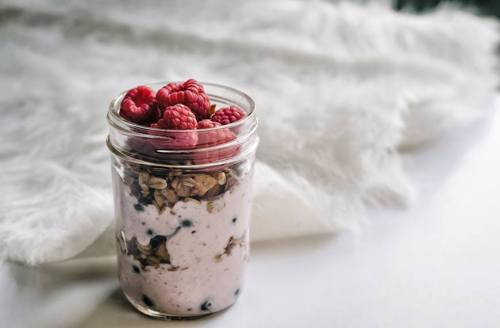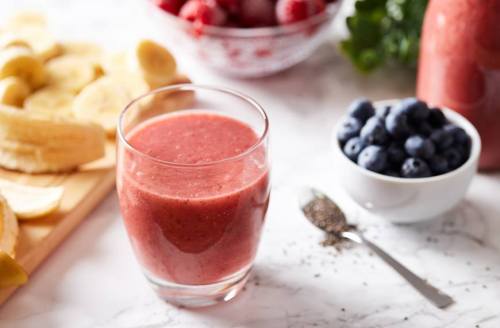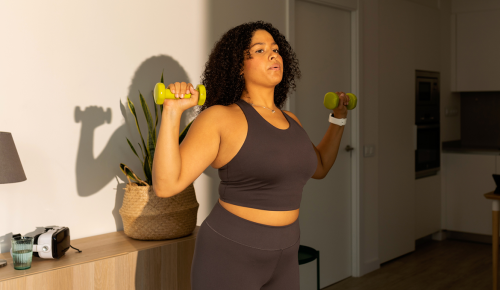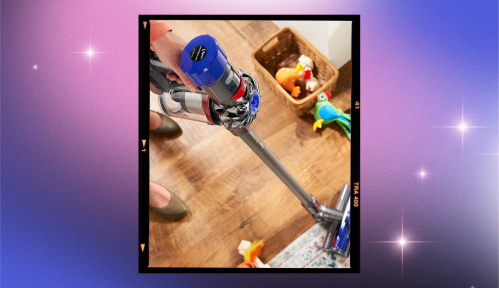Training for a race—or even just busting through a tough workout—requires physical stamina and mental drive. It also requires following a diet that fuels you. Why? Perhaps even more than—or at least as much as—the miles you put in, what you eat will (kinda, sorta, def) make or break your performance.
Determining which foods will keep you from feeling seriously tired or maxed out—as well as figuring out what will keep you from cramping or bloating—are must-knows. So, I turned to two registered dietitians and a professional chef who regularly pound the pavement for tips. Keep reading to see the food rules experts follow to supercharge their runs.

What to eat before a run
Oatmeal, banana, whole-grain toast, nut butter, apple
“Two to four hours before a workout, I try to have a snack or light meal that’s high in good carbs, moderate in easily-digestible protein, and low in fat, refined sugar, and fiber (to prevent cramping),” says Lindsey Becker, chef, certified health coach, and founder of Farm Cut and Tone House FUEL.
Pam Nisevich Bede, RD, a sports dietitian with EAS Sports Nutrition and a 2018 Boston Marathon finisher (her 18th full marathon) agrees with going for snacks low in fat and fiber, plus she aims to keep hers high in carbs and moderate in protein. “If I’m going longer (anything over 60 minutes), I fuel up with some easy-to-digest carbohydrates,” she says. “I opt for a cup of oatmeal and a banana or a piece of whole-grain toast topped with some nut butter and sliced apple. Pre-workout, my go-to is coffee with some almond or dairy milk. I rely on the milk for a small dose of protein, and I rely on the coffee for a jolt of caffeine and energy.”

What to eat on race or hard-training days
Smoothies, beets, spinach, bagels, bananas, apple, peanut butter, oatmeal, cereal with fruit, toast, avocado, eggs
“Smoothies are always great, and I try to order one with spinach and beets,” Becker says. “Research has found that spinach can help muscles use less oxygen, which improves performance, and beets help increase blood flow to working muscles, which can boost stamina. They are also rich in antioxidants, which helps fight the oxidative stress that can come with intense workouts.”
If you’ve run a race, you’ve probably heard you shouldn’t try anything new on race day—and that’s especially important for your pre-workout meals. “The most important thing is to eat food that your system will tolerate. Practice with different pre-workout meals or snacks on training days so that you know what your body will digest easily and what will keep you energized,” says sports dietician Torey Armul, spokesperson for the Academy of Nutrition and Dietetics, and 17-time marathoner and ultramarathoner. “My personal favorites include a bagel, banana, or apple with peanut butter; oatmeal or cereal with a piece of fruit; toast with avocado; or egg sandwich on an English muffin.”

What to eat after a run
Salmon, almonds, cashews, pistachios, nut or protein bar, protein shake or smoothie, milk, cottage cheese, Greek yogurt, eggs, fruit, avocado, hemp seeds, spinach, sweet potatoes
All the experts agree the pro move after a run is protein. “Protein is the most important nutrient for muscle recovery and repair,” says Armul.
Bede says she always aims to recover with 15 to 25 grams within an hour of finishing. “The harder the workout and the more miles I put in, the more protein,” she says. Becker opts to get hers from salmon because of its added benefits: “Wild salmon provides a large dose of protein and anti-inflammatory omega-3s to rebuild your muscles,” she says.
Of course, protein isn’t the only nutrient your body will crave after busting through miles or intense intervals. “You’ll also want to replenish your glucose stores with carbohydrates, and replenish fluid and electrolytes that have been lost in sweat,” says Armul. “So drink fluids, eat fruits and vegetables, and have a post-workout meal that contains both carbohydrates and protein. My post-workout go-tos: almonds, cashews, pistachios or a nut or protein bar; a glass of milk or homemade protein shake or smoothie; cottage cheese, Greek yogurt; or a hard-boiled egg and fruit.”
Becker likes a bowl of savory oatmeal for a satisfying blend of carbs and protein and tops it with two hard-boiled eggs, sliced avocado, hemp seeds, and sautéed spinach. And her go-to carb for before a run? Sweet potatoes. They contain a “healthy dose of complex carbs to refuel your glycogen stores, potassium, antioxidants, and fiber.” she says. Pro tip: Use thick slices of sweet potato as the bun for things like burgers.
Runners have a lot to consider: here are 5 upper-body exercises to improve your stride, and don’t forget about recovery! These tips will get you practicing self-care like it’s the most important thing ever (which it is!)
Sign Up for Our Daily Newsletter
Get all the latest in wellness, trends, food, fitness, beauty, and more delivered right to your inbox.
Got it, you've been added to our email list.











